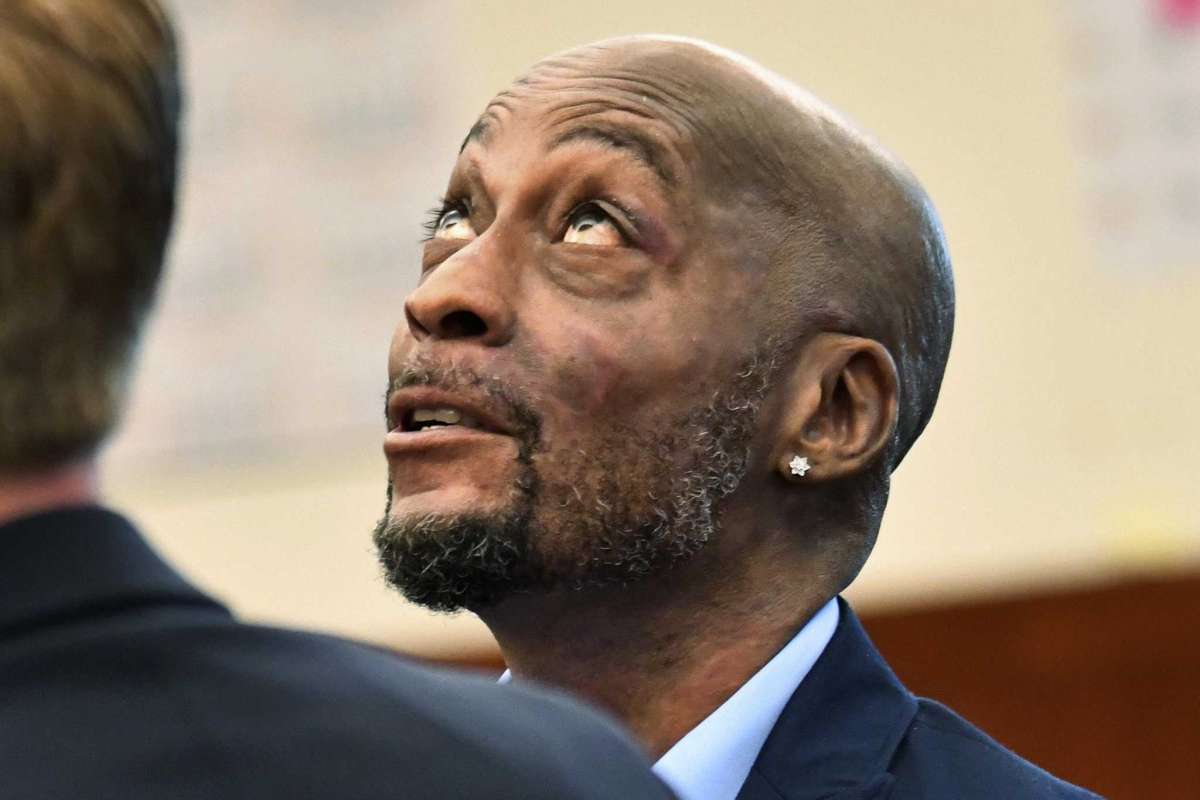
Jurors who awarded $289 million to a former school groundskeeper who is dying of cancer are imploring a San Francisco judge to reconsider her tentative decision to overturn most of the damages against Monsanto Co., manufacturer of the weed killer that they found to be the cause of the man’s illness.
“You may not have been convinced by the evidence but we were,” juror Gary Kitahata said in a letter to Superior Court Judge Suzanne Bolanos, who is considering Monsanto’s requests to reduce the damages or overturn the entire verdict. “I urge you to respect and honor our verdict and the six weeks of our lives that we dedicated to this trial.”
Another juror, Robert Howard, said in his letter to the judge that the jury had paid “studious attention” to the evidence, closely followed Bolanos’ instruction and deliberated for several days. The possibility that “our unanimous verdict could be summarily overturned demeans our system of justice and shakes my confidence in that system,” Howard wrote.
The two were among eight jurors and two alternates who attended a public hearing Wednesday at which Bolanos indicated she was likely to overturn the $250 million in punitive damages that the jury had awarded to Dewayne “Lee” Johnson, and possibly another $31 million in damages for his shortened life expectancy, reducing the award to just over $8 million.
Kitahata, owner of a financial consulting company, said Monday that the jurors attended the hearing “to support the verdict,” and had been in touch with fellow jurors who all appeared to share their view. Howard, an artist and residential contractor, said two more jurors had written letters to Bolanos endorsing their verdict.
Asked for comment, Bayer AG, which owns Monsanto, said its challenges to the verdict “raise issues of law that are properly addressed by Judge Bolanos.”
Judges have the authority to overturn jury verdicts or modify them by reducing damages. They are not empowered, however, to overturn a jury’s factual findings if there is any evidence to support them.
Johnson, 46, of Vallejo, was a groundskeeper and pest-control manager for the Benicia Unified School District from 2012 until May 2016. His job included spraying Monsanto’s herbicide, glyphosate, in a high-concentration brand called Ranger Pro, from 50-gallon drums 20 to 30 times a year for two to three hours a day.
Johnson testified during the trial that he was exposed to windblown spray, despite protective clothing, and was drenched twice with the liquid when the equipment he was using broke. He was diagnosed with non-Hodgkin’s lymphoma in October 2014 and with a more aggressive form of the cancer in March 2015.
One of his doctors testified that Johnson is unlikely to survive to 2020. His case was the first to go to trial among about 4,000 suits against Monsanto nationwide by people who claim they developed cancer or other serious illnesses from exposure to Roundup, the company’s widely used glyphosate product.
The International Agency for Research on Cancer, an arm of the World Health Organization, classified glyphosate as a probable human carcinogen in 2015. But the U.S. Environmental Protection Agency has found it to be a safe product, and it remains legal in the United States and Europe.
After a trial that included testimony by medical experts on both sides, the jury found unanimously in August that Monsanto was responsible for his illness and should have known of the product’s dangers. Jurors awarded damages for Johnson’s financial losses, pain and suffering, and loss of life expectancy. And in awarding $250 million in punitive damages, jurors found that Monsanto had acted maliciously by supplying the herbicide to the school district without disclosing its life-threatening effects, and by failing to return Johnson’s phone calls after he became ill.
In a tentative ruling last week, however, Bolanos said Johnson’s lawyers presented no evidence that any Monsanto employee had known or believed that its products could cause cancer. She also questioned whether California law authorized the jury’s award of $1 million for each year of his life expectancy before the cancer diagnosis.
Her final ruling is due by next Monday and could be appealed.
Both Howard and Kitihata said the judge had allowed the jury to decide Monsanto’s responsibility for Johnson’s illness, based on the evidence they heard, and now appeared to be backtracking from her own decision while second-guessing their conclusions.
Testimony about scientific studies of the product, and about Monsanto’s possible influence on the U.S. agency that allowed its continued sale, showed “there were serious questions about the safety of glyphosate and Roundup” when the company supplied it to Johnson’s employer, Howard said Monday. He said Monsanto’s expert witnesses, whose sworn depositions were viewed by the jury, were “not credible — they’re nervous, shifty-eyed, used linguistic gymnastics not to answer questions.”
In his letter to Bolanos, Howard said the damages for each year of Johnson’s reduced life expectancy were based squarely on the judge’s instruction that jurors could award him compensation for “loss of enjoyment of life” due to his illness.
Kitihata told Bolanos that when evidence was presented about Johnson’s life expectancy before his cancer diagnosis, she had never raised questions about the jury’s use of that evidence to award damages. To do so now, he said, would be “rewarding (the company) for shortening Mr. Johnson’s life expectancy.”
“She had a chance to raise these questions during trial and even during jury deliberations,” Kitihata said Monday. “I thought it was the jury’s role to be the judge of evidence.”
Bob Egelko is a San Francisco Chronicle staff writer. Email: begelko@sfchronicle.com
Twitter: @BobEgelko
Read full article at www.sfchronicle.com

Leave a Reply